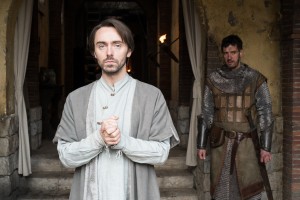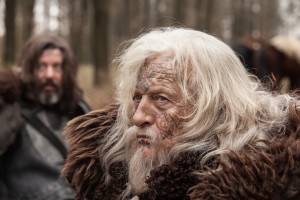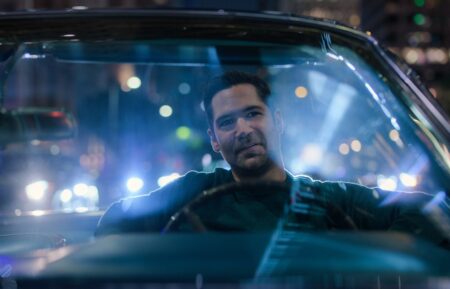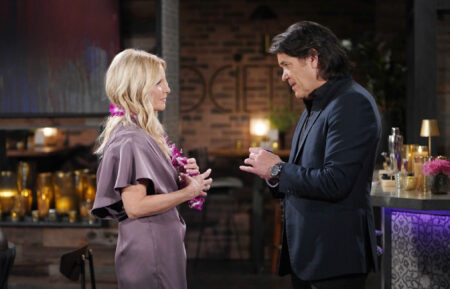‘The Last Kingdom’: When Vikings Were the ‘Rock Stars of Their Time’
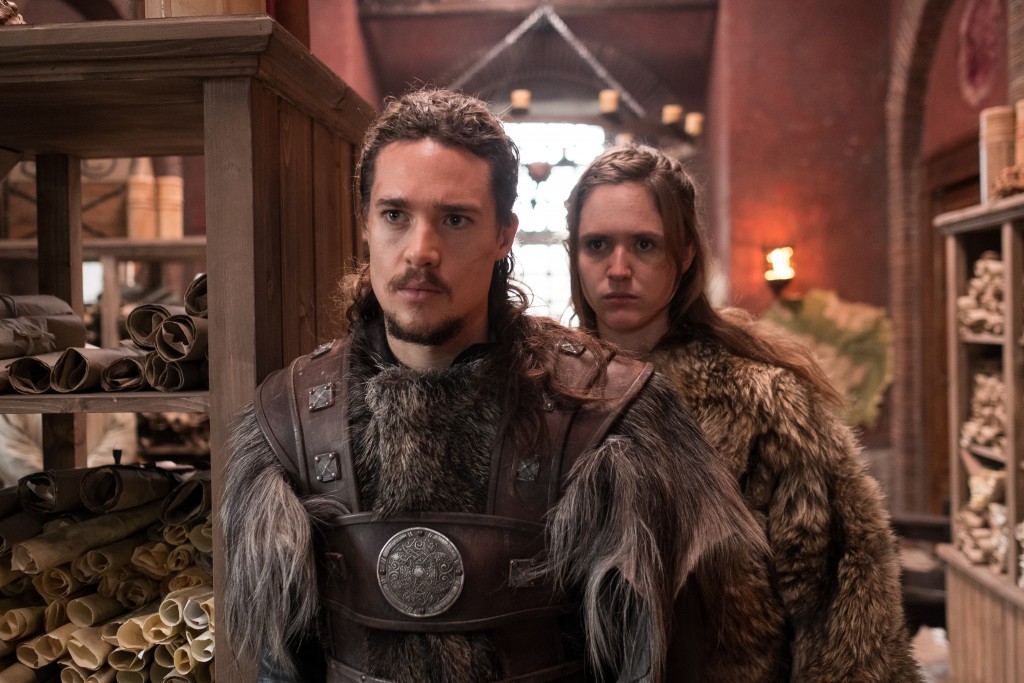
 If you’re jonesing for your newest Vikings (or, for that matter, History’s Vikings) fix, don’t fret: Pillaging-and-plundering Norsemen will be wreaking havoc on poor old England and on your TV screen this fall.
If you’re jonesing for your newest Vikings (or, for that matter, History’s Vikings) fix, don’t fret: Pillaging-and-plundering Norsemen will be wreaking havoc on poor old England and on your TV screen this fall.
BBC America’s eight-part series The Last Kingdom is looking back at the ninth century in an adaptation of historical novelist Bernard Cornwell’s eight-book saga The Saxon Stories; fortuitously, a ninth book, titled Warriors of the Storm, is due in early 2016, right at the tail end of this series’ finale. Executive producers Gareth Neame and Nigel Marchant have traded the genteel drawing rooms of Downton Abbey for a trek back to the first millennium, when the Danes were conquering and occupying most of England’s small, disparate kingdoms. (There are no dragons here, but lots of blood, battles and political intrigue for fans of fare such as HBO’s Game of Thrones.)
Unlike History’s aforementioned merry band, however, the Vikings in The Last Kingdom face a worthy opponent: the ruler who came to be known as Alfred the Great (David Dawson, late of the network’s Ripper Street), who was, in essence, the George Washington of England.
The drama is told through the eyes of the dashing Uhtred of Bebbanburg (Alexander Dreymon, best known for playing Patti LuPone’s sheltered son on American Horror Story: Coven), a Saxon, i.e., an early Englishman, who thinks like a Dane. A fictional character (though Cornwell has a real-life ancestor by that name), Uhtred is a nobleman, captured as a child during a Viking raid to serve as a hostage/slave. A fearless boy, he’s eventually integrated into a family headed by the powerful Earl Ragnar (Peter Gantzler) and his elderly, blind father, Ravn (True Blood’s Rutger Hauer) and grows up to look and feel much like a wild, young Viking.
All that comes to an end when Uhtred is implicated in a tragedy that befalls a Viking clan, and he and his lover/fellow Saxon, Brida (Austrian actress Emily Cox), become fugitives, accepted by neither Saxons nor Danes. To Alfred, he’s “a godless heathen,” says Dawson of the characters’ first meeting.
“Contrary to what many Saxons and Danes think of him, he’s trustworthy, loyal and honest, though he can be a real d–k,” Dreymon concedes. “After all, Uhtred lives by the sword; he was taught as a child to take what he wants.” Adding to the show’s authenticity, the actor learned to wield a period-specific arsenal, thanks to stunt coordinator Levente Lezsák, who taught him how to “murder in style,” he jokes.
RELATED: Visit Our Fall Preview Page to Check Out New Shows
Despite his Viking sympathies, Uhtred will stop at nothing to take back what is rightfully his—the Northumbrian lands of Bebbanburg, stolen by his uncle, who’s allied with the Danes. “To achieve that, he needs an army, and that’s possible only by choosing the right allegiances,” Dreymon says. “That’s not easy, having grown up between two religions and two peoples at war.”
Indeed, religion is a major player in the struggle between cultures. “You’ve got this conflict where Alfred and his priests try to spread the word of Christ,” Neame says, “but the people of Britain, like the Vikings, are still quite pagan in their thinking.” Rightly so, thinks Dreymon. “The Vikings were the rock stars of the time. It’s more fun to be pagan, where you satisfy the gods by entertaining them, by being a fearless warrior, a passionate lover and grabbing life by the balls rather than being a pious Christian, where God is kept content through self-flagellation at every carnal thought you might let slip in.”
While Uhtred will be increasingly torn between identities, Brida knows who she is—and that’s a Dane. “If Brida were a real person,” Cox says, “then one could say that she was the first feminist. She’s strong, says what she thinks and stands up for what she wants. To her, the only life worth living is one where she is equal to men. To become a Saxon woman—who she believes are dependent, weak and stupid—is the worst thing that could happen.” Next to losing her true love—Uhtred, that is—who may see fighting for Alfred as the only way to get back his inheritance.
“For his part,” Dawson says, “Alfred wants to learn from Uhtred about his enemy, how they fight, what they fear and how they live—to better know how to beat them.” Despite a debilitating digestive ailment (thought nowadays to have been Crohn’s disease), Alfred had “a major advantage against his enemies,” notes the actor portraying the father of his country. “They were fierce warriors, but he was a master strategist, an accomplished manipulator and astonishingly intelligent.” All of which he’ll have to deploy to outwit his many enemies in both camps. “His crown is never safe.”
Dawson would like to make one more thing clear: “What strikes me about The Last Kingdom,” he says, “is that there are no simple heroes and villains. The Danes and Saxons are both good and bad, equally loyal to their own, devout to their gods, yet equally ruthless. I’m really excited to see who the audience roots for.”
 The Last Kingdom, premieres Saturday, Oct. 10, 10/9c, BBC America

